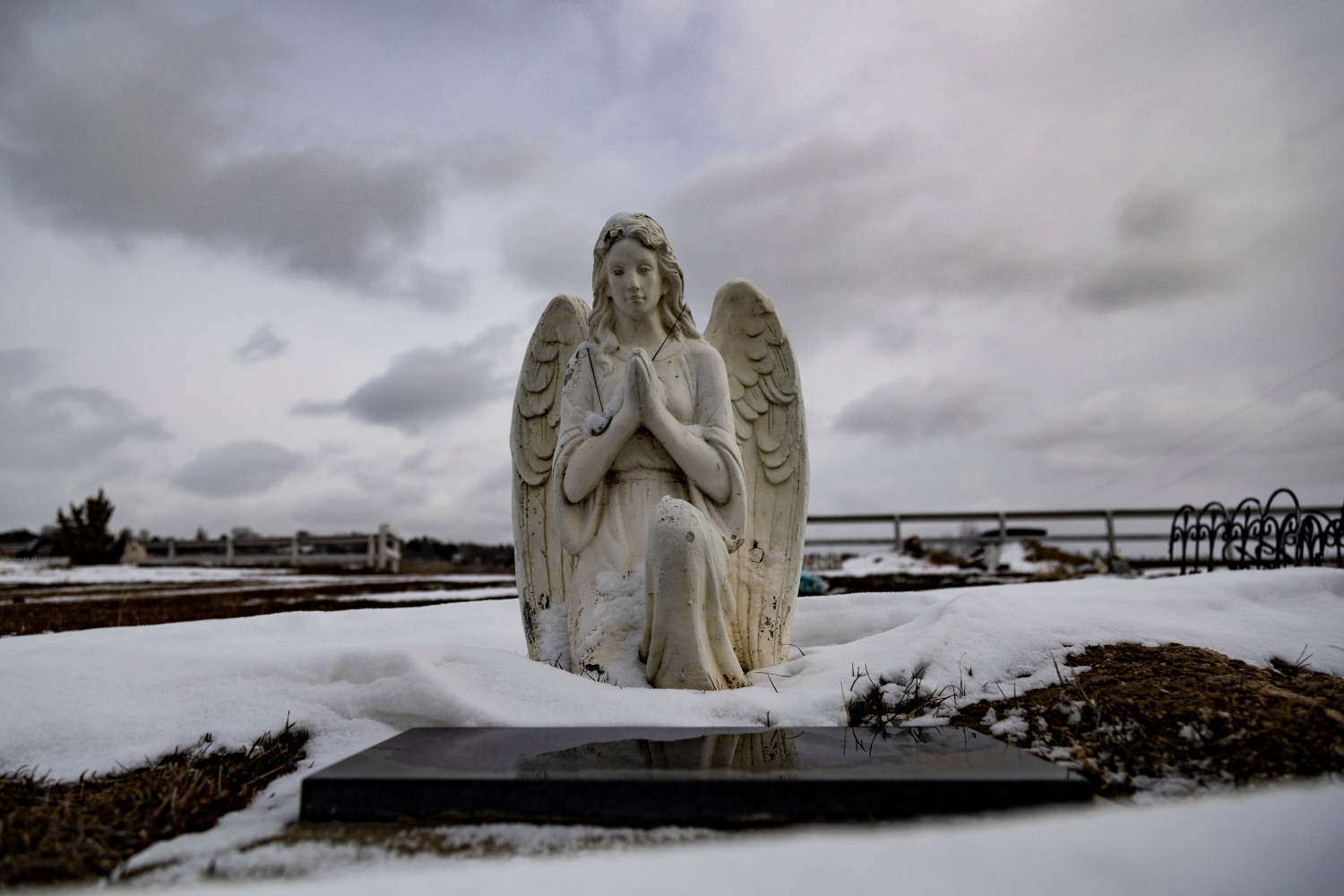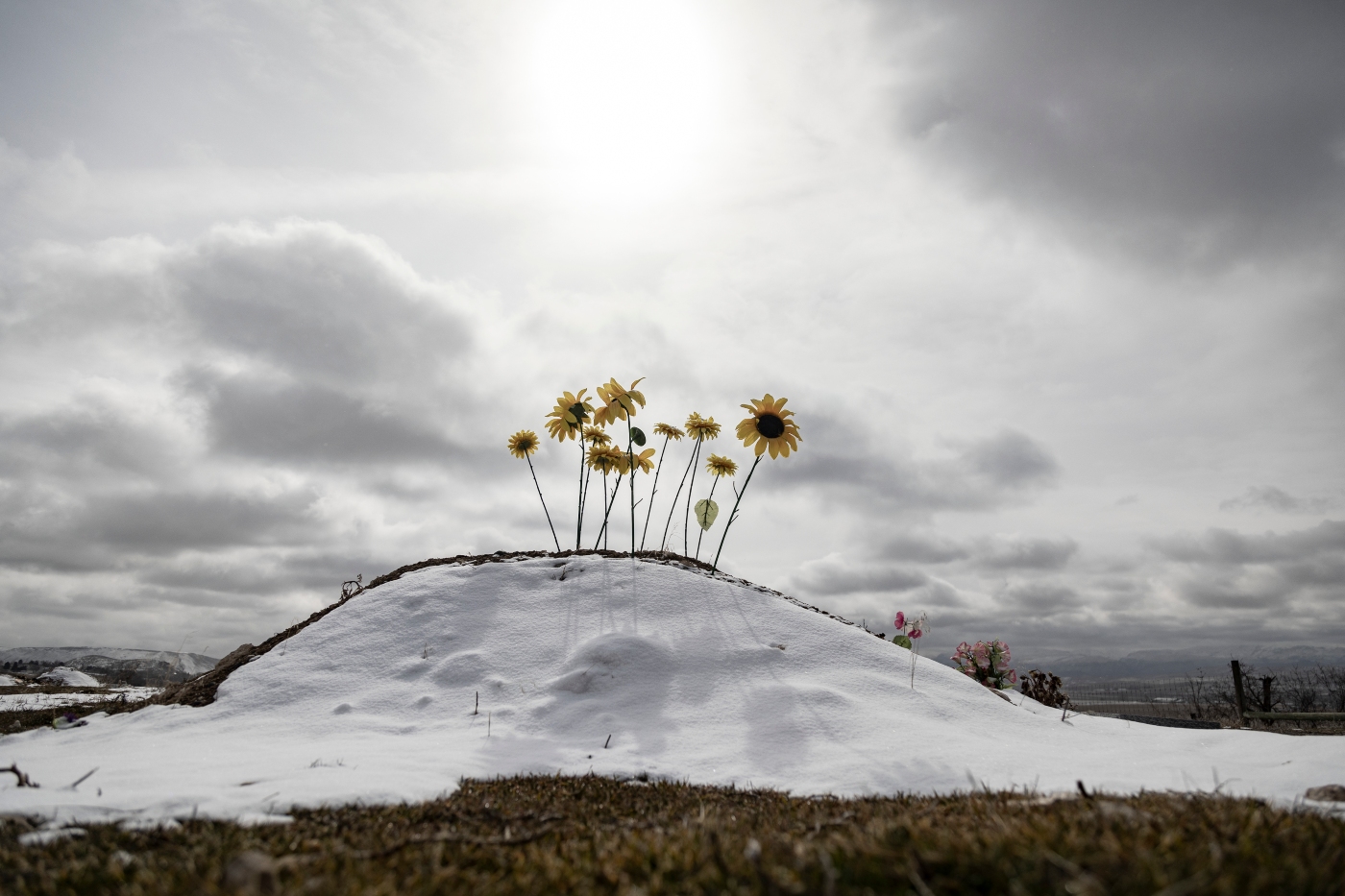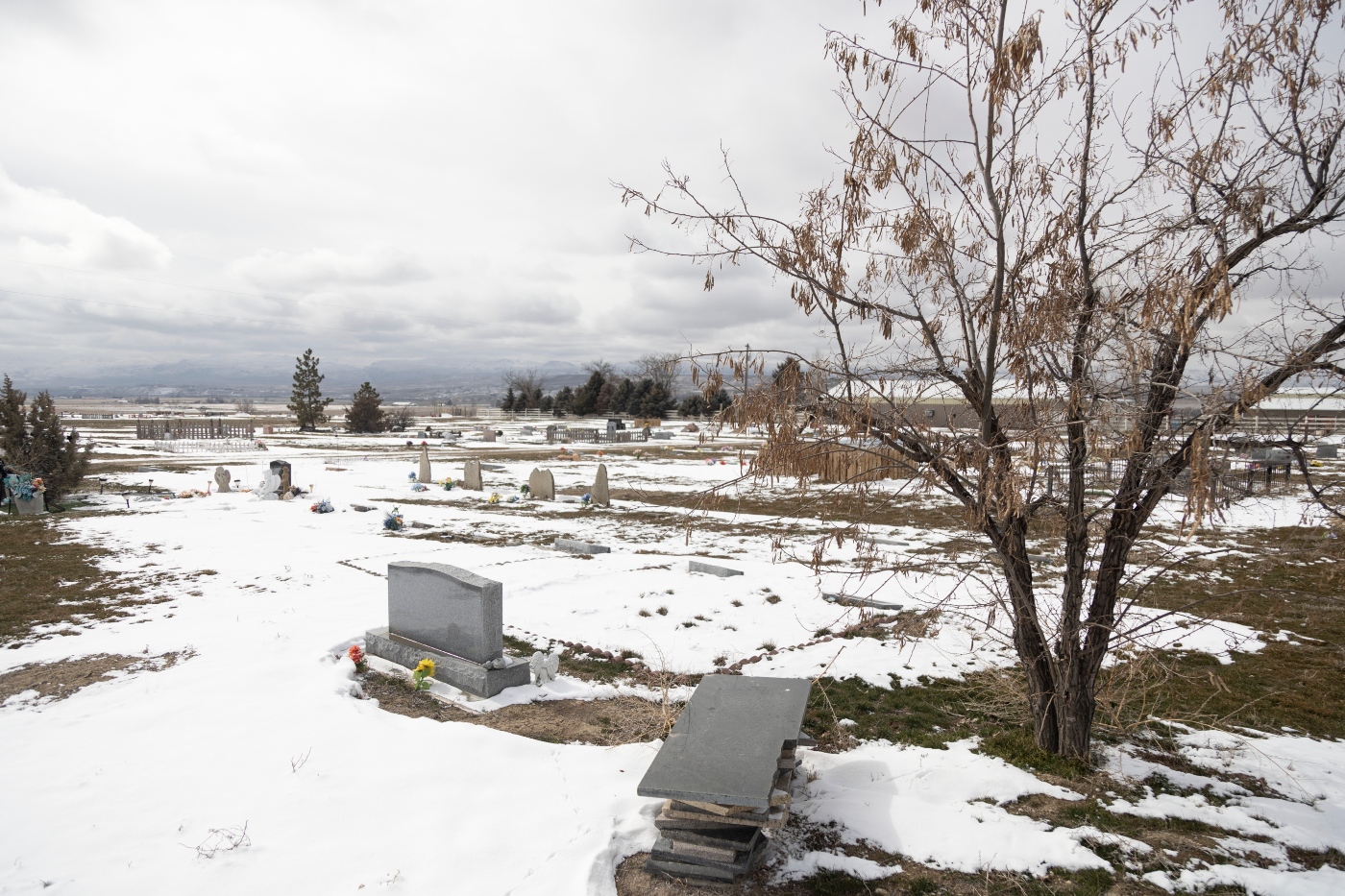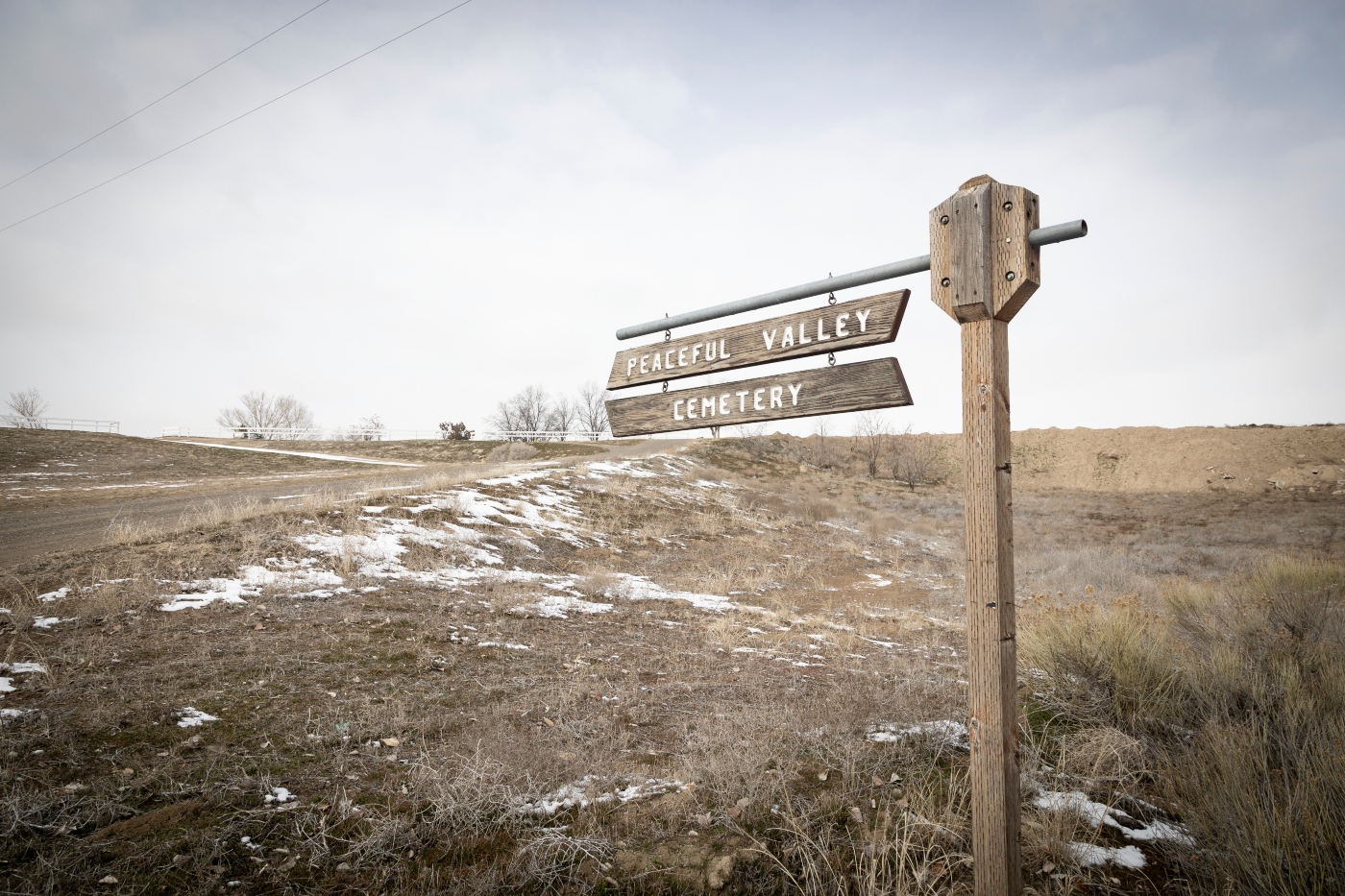How faith-healing exemptions have survived not only in deep red Idaho, but reliably blue Washington state
For years, Linda Martin has kept a stack of files describing the deaths of children in Idaho.
Each death is a child of the Followers of Christ, a sect of Christians who reject medicine and instead rely on prayer to heal the sick. Martin was raised in the church but now is among the strongest advocates of making faith healing in lieu of necessary medical care illegal in Idaho.
But each year, Martin’s stack of coroner reports keeps growing.
“These never get any easier to read,” she says.
There’s a 2-year-old whose feet swelled as a fever burned for six weeks before she died of strep pneumonia. There’s a baby who died in its mother’s arms due to a disease in the colon that could have been treated with surgery. There’s stillbirth after stillbirth after stillbirth, reports obtained by InvestigateWest show. And because of Idaho’s religious exemption for so-called “faith healers,” all of it is perfectly legal.
Many states, including Washington, have some kind of legal protections for parents who refuse medical treatment for religious reasons. But due to Idaho’s extraordinary leniency for faith-healing parents and the number of deaths at Followers of Christ, Idaho’s has drawn the most attention, including a 2018 Emmy-nominated documentary called “No Greater Law.” It’s one of only a handful of states that shields faith-healing parents from felony charges such as manslaughter even if their children die of treatable illnesses.
Attempts to remove the faith-healing exemption have been blocked repeatedly by Idaho legislators trumpeting religious freedom and parental rights. And while the pandemic has pushed public health into the headlines, it’s done little to take politics out of the discussion. In many ways — especially when it comes to parents’ decisions for their children — it seems to have had the opposite effect.
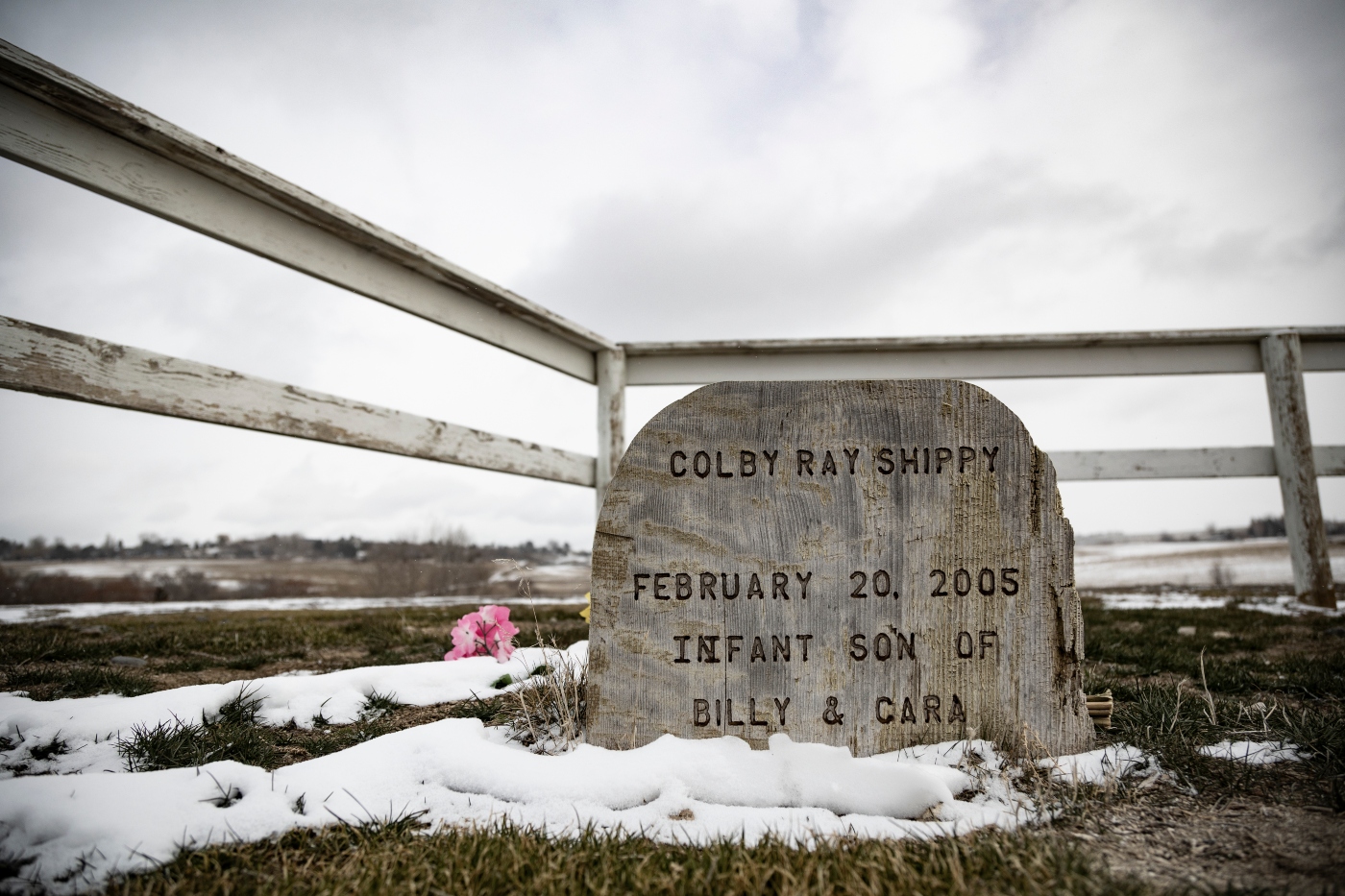
In 2015, a task force compared the child deaths in Idaho overall with the gravestones at Peaceful Valley Cemetery. The task force estimated that 31 percent of the gravestones at the cemetery belonged to children, 10 times higher than child deaths in the rest of the state. (Kyle Green/InvestigateWest)
Far from trying to remove Idaho’s faith-healing exemption, Idaho lawmakers introduced a bill in November that would have strengthened it, though it stalled in the Senate.
Even in Washington, proponents of removing the state’s religious exemption for abuse or neglect — which, somewhat uniquely, only applies to Christian Scientists — are finding the task more difficult than they’d anticipated. In the last decade, several attempts to do so have failed.
A new Washington proposal, House Bill 1048, had some advocates optimistic until the legislation stalled in the Senate in late February. Lawmakers who supported it had been skeptical it would get through, given how the pandemic has stoked concerns over parental rights and medical decisions.
“I view that as an obstacle, not a tail wind,” says Sen. Mark Mullet, D-Issaquah, who sponsored a similar bill two years ago. “You can’t do public policy in a logical way when things are super emotional.”
STALLED IN OLYMPIA
Rita Swan, who founded an organization working to repeal faith-healing exemptions across the country, says that Idaho’s exemption is particularly egregious, but Washington’s is problematic, too.
Washington first added a Christian Science exemption for medical neglect as part of an education bill in 1969. Then in 1997, the state expanded the exemption so that parents using Christian Science treatments can’t be criminally prosecuted for withholding medical care. That change was part of an amended bill adopted pro forma, meaning it was voted on with no opportunity to make changes.
Today, Washington is one of three states — the other two being Arizona and Connecticut — to have exemptions mentioning Christian Science directly. Children or vulnerable adults receiving Christian Science treatment are not considered abused or neglected in Washington, even if it leads to a high probability of death.
Proponents of the exemption argue that it allows Christian Scientists to treat children according to their religious beliefs, claiming there have been thousands of healings due to Christian Science prayer treatments. The Christian Science church says members are not forbidden to go to doctors.
But with the way the law is written, Swan says, it’s possible to claim a religious defense to a second-degree murder charge when a child dies of abuse or neglect.
“I think it’s so foreign to Washington’s values,” Swan says.
Swan is a former Christian Scientist herself. In 1977, she was living in Michigan when her 16-month-old son, Matthew, became ill with a fever. She called a Christian Science practitioner for treatment, which amounted to praying for the child.
When the fever wouldn’t go away, Swan wanted to take him to the doctor. But she was torn: If she sought medical care, the Christian Science practitioner said she’d no longer give Matthew prayer treatments. To the church, Swan’s doubts about the prayer treatment were the reason they weren’t working.
On the 12th day of Matthew’s fever, Swan took him to the hospital.
“Immediately six nurses surrounded him,” Sway says. “I thought, ‘These are the people that care about children.’”
But it was too late. Within days, Matthew died of meningitis.
Swan, ridden with guilt, left Christian Science and devoted her life to removing exemptions allowing faith healing in lieu of medical care. She began tracking related deaths in each state. So far, she’s identified 10 children since the 1970s who’ve died in Washington from treatable diseases, and nearly 200 in Idaho.
In Washington, bills to change the exemption in the last decade have failed to gain traction. Oregon, meanwhile, ended its religious defense for faith healers in 2011 for cases of homicide and criminal mistreatment of children. Since then, several Followers of Christ parents in Oregon have been convicted of not seeking medical care for their children.
Mullet, the Washington state senator, grew frustrated that multiple bills he sponsored to remove the exemption never passed. At first, he could blame the Republican-controlled Senate, but once Democrats gained control several years ago, the bills still didn’t pass.
“At the end of the day, they were like, ‘This isn’t a top priority that we have to pass this session so it can wait until next year.’ And that was just the story over and over,” Mullet says.
This year, Rep. Emily Wicks, D-Everett, sponsored a bill that would have removed the reference to Christian Science practitioners in the state’s criminal mistreatment law and clarified that faith-based practices constitute negligent treatment or maltreatment if they pose a clear and present danger to the child.
The Christian Science church in Washington took a neutral stance, but said they’re generally supportive of the change.
“We recognize the responsibility and ethic that must especially extend to the care of children and vulnerable adults who depend upon others for their proper care,” says spokesperson Lance Matteson. “We feel this bill achieves that proper balancing of interests that promotes health and fairness for all Washingtonians, including our most vulnerable.”
The bill overwhelmingly passed through the House on Feb. 14 with bipartisan support. But again, it died in the Senate at the end of the month.
Caroline Fraser, an author who was raised a Christian Scientist in Washington, supported the law change but says the root of the problem goes deeper than the current state law. If the Christian Science exemption were removed, Fraser remains skeptical the law would be followed. Christian Scientists may not see that a child has a disease, she says, because their “entire life is based on denying the existence of those diseases.”
“If you’re a believer, you cannot evaluate whether a child is suffering,” Fraser says. “They won’t report because they don’t believe what’s in front of their eyes.”
‘THESE KIDS WERE DYING’
As her stack of death reports continued to grow, Martin turned her attention in 2017 to the coroner in Idaho’s Canyon County, where gravestone after gravestone marks the deaths of young Followers of Christ children in the church-affiliated Peaceful Valley Cemetery near Boise.
She filed a complaint with state Attorney General Lawrence Wasden, alleging that the coroner at the time repeatedly failed to refer children’s deaths to law enforcement as required by state law. Martin provided more than a dozen coroner reports backing up the allegation.
But the attorney general’s office declined to look into the complaint at all. Instead, in the office’s response to Martin obtained by InvestigateWest, they quibbled with the language of the law. The law requires a referral to law enforcement if a death occurs that is not attended by a physician “and the cause of death cannot be certified by a physician.”
While the deaths in Martin’s complaint were clearly not attended by a physician, the attorney general’s office said Martin’s complaint failed to allege that they could not have been certified by one.
For that reason, the attorney general’s office said the complaint didn’t establish even “potential” violations of the law, so they did not have authority to investigate. The office declined to comment for this article.
Martin calls it a “phony excuse” that illustrates how committed Idaho remains to protecting Followers of Christ, a small church with members scattered around the state and in Oregon.
“I really thought people would care more. You think that when you put so much out there, and with the horrific way these kids were dying, that people would care enough to help,” Martin says.
Idaho’s religious exemption dates back to 1972. Soon after, religious exemptions for medical neglect became much more common. In 1974, Richard Nixon signed the Child Abuse Prevention and Treatment Act, which carved out a faith-healing exemption and required states to pass similar exemptions in order to access federal funds.
That federal requirement was later rolled back, and many states subsequently repealed religious exemptions.
In the last decade, Martin has tried everything she could to remove Idaho’s exemption. She told them about her nephew Steven who died of untreated pneumonia just before he turned 3 because Martin’s brother was a member of Followers of Christ and refused to get him medical care, Martin says. She showed reporters graves of children scattered throughout Peaceful Valley Cemetery.
In 2015, a task force put together by then-Gov. Butch Otter estimated that 31 percent of the gravestones at the Peaceful Valley cemetery belonged to children, 10 times higher than child deaths in the rest of the state.
But bills to change the law were scuttled. State Sen. Patti Anne Lodge emerged as a major obstacle for child advocates, arguing — like many Idaho lawmakers — that faith healers have a right to practice their religion, even when there are deadly consequences.
Lodge, who lives in Canyon County, is not a member of Followers of Christ but has spoken openly in favor of the church. Its most publicly seen member, Dan Sevy, who featured heavily in the “No Greater Law” documentary, reportedly played music for one of Lodge’s fundraisers in 2016. Sevy declined to comment for this article. In the past, he’s argued to state legislators that Western medicine comes from “Satan” and that the reason more Followers of Christ children die is because the members have larger families.
In January, child advocates and law enforcement officials held a panel again calling for a change to the faith-healing exemption, but no legislation was introduced. One advocate, Protect Idaho Kids founder Bruce Wingate, says if a bill overturning Idaho’s exemption didn’t pass before, it certainly would have a hard time passing in 2022.
The pandemic has only amplified fears from Idaho’s conservatives that their religious freedom and parental rights are under attack.
“But with or without a pandemic, parental rights don’t trump a right to life,” Wingate says. “These kids don’t know what constitutional freedom or religious freedom is. They’re 1 or 2 years old.”
InvestigateWest is an independent news nonprofit dedicated to investigative journalism in the Pacific Northwest. Visit invw.org/donate to support this kind of in-depth reporting.
FEATURED IMAGE: The Peaceful Valley Cemetery outside of Boise is used by Followers of Christ, a sect of Christians who reject medicine and instead rely on prayer to heal the sick. (Kyle Green/InvestigateWest)

